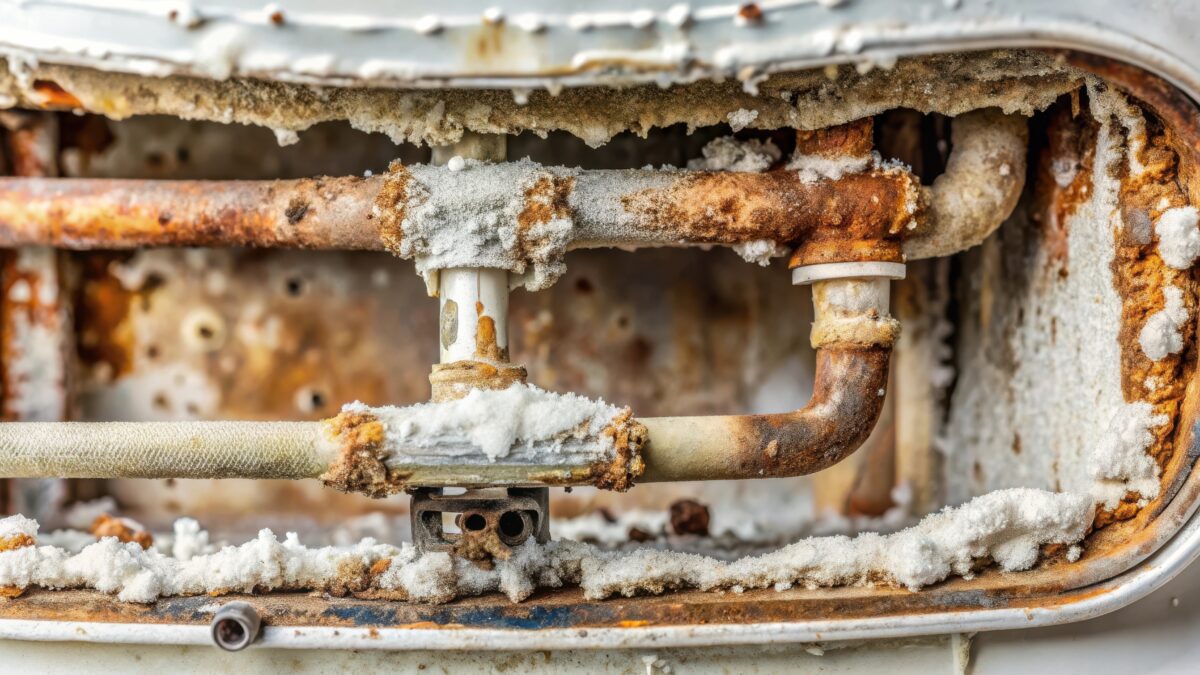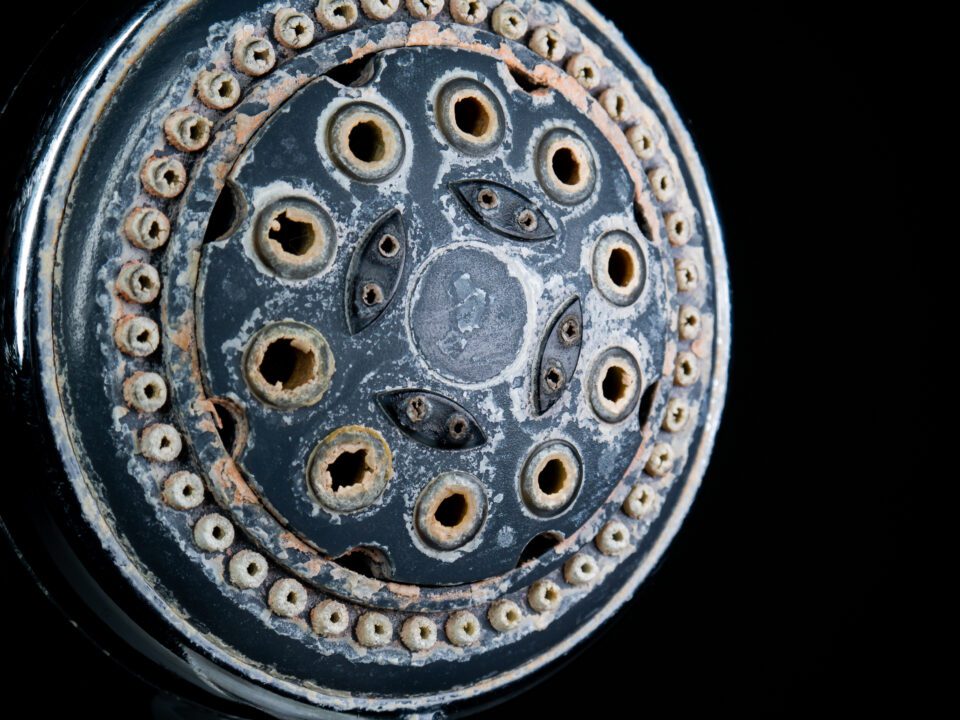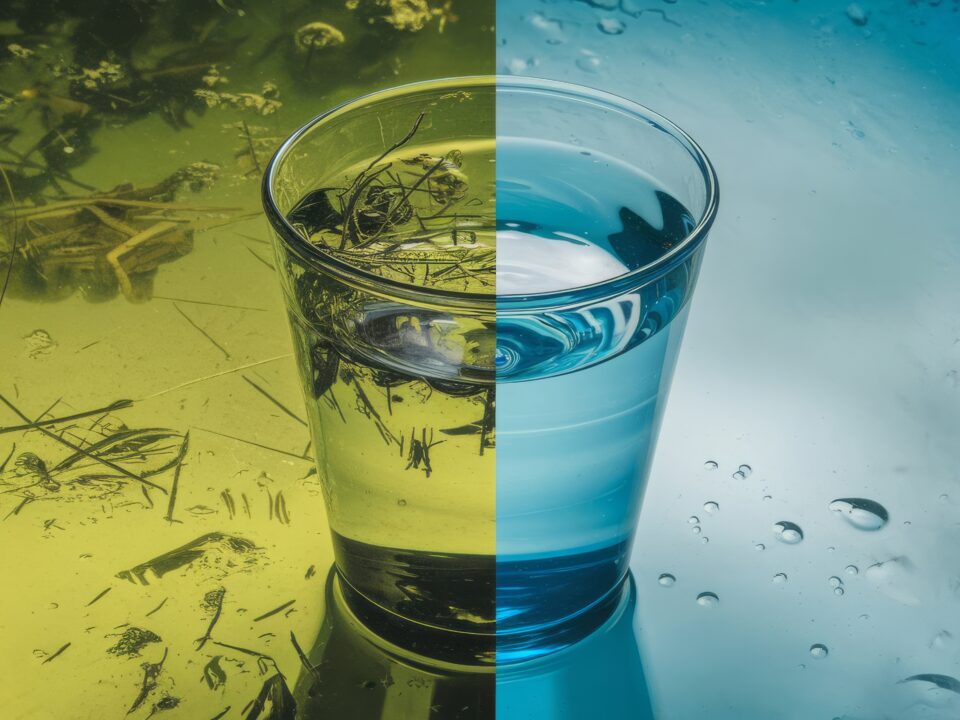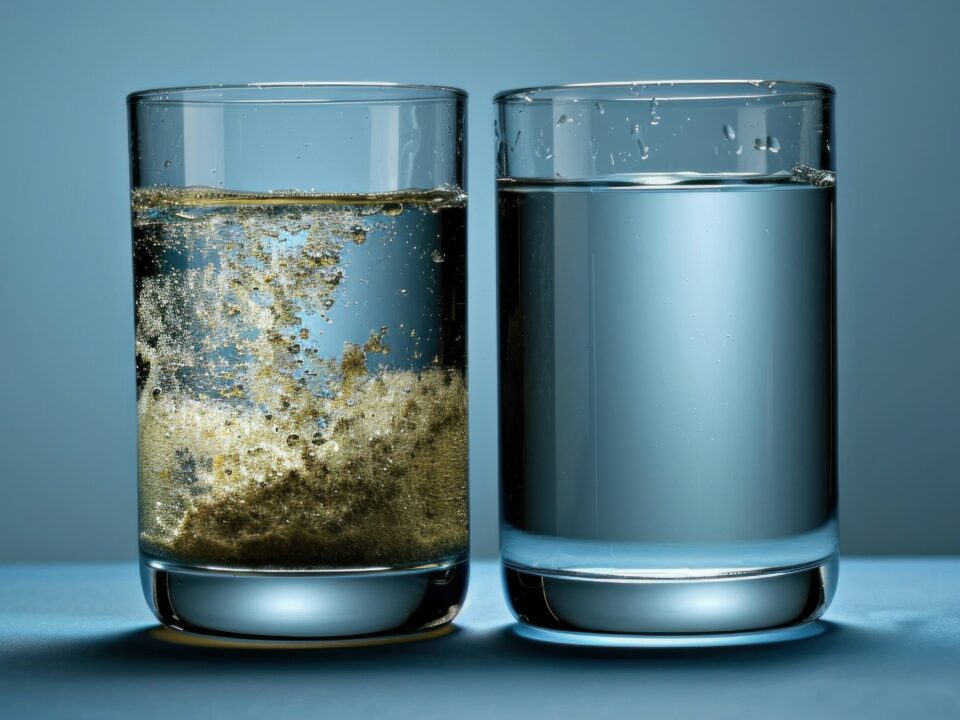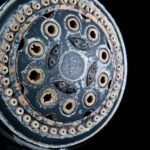
Hard Water vs. Soft Water: Understanding the Differences and Impact for Your Home & Family
March 11, 2025The average person uses 80-100 gallons of water a day.
But most homeowners never realize the huge impact water has on their homes and health.
So who’s to blame for these issues?
Hard water.
So what is “hard water?” Simply, it’s water containing high levels of minerals like calcium and magnesium (and often many other contaminants).
It can cause numerous problems, including damaged appliances, plumbing issues, and even skin irritation.
These are the few most homeowners notice, but many more issues go unnoticed for years.
Here are five clear signs that prove your home may benefit from a water purification device—and how you can fix hard water problems for good.
1. Limescale Buildup on Fixtures and Appliances
One of the most obvious signs of hard water is limescale buildup.
This is the white, chalky residue left behind when hard water evaporates.
Limescale is often found on:
- Faucets and Showerheads – Over time, limescale deposits can clog your fixtures, reducing water pressure and making them look unsightly. Leading to unnecessary replacement of costly equipment.
- Dishwashers and Washing Machines – Mineral buildup inside these appliances can reduce their efficiency and lifespan, leading to frequent repairs or replacements. (Note: buildup is often found on glass dishes, causing a ‘cloudy’ or ‘dirty’ look and feel).
- Water Heaters (Hidden Problem) – A thick layer of limescale inside your water heater can make it work harder to keep your water at the perfect temperature you want, increasing energy consumption and raising your utility bills. Most homeowners never realize this problem until they have to replace their water heater.
2. Soap Scum and Poor Cleaning Performance
Hard water affects the way soap and detergents work, making it harder to achieve a proper lather.
You may notice:
- Soap Scum on Bathtubs and Sinks – A filmy residue can build up on surfaces, making cleaning more difficult and your tubs always looking dirty.
- Dishes with Spots and Film – Even after a cycle in the dishwasher, your glassware and dishes may still have a cloudy appearance. This is the reason your glassware never appears to be clean (even after multiple cycles).
- Laundry That Feels Stiff and Faded – Clothes washed in hard water can feel rough to the touch and lose their brightness more quickly due to detergent not rinsing properly. A huge ‘money-drainer’ for families.
3. Dry Skin and Hair Problems
Hard water doesn’t just impact your home—it can affect your family’s body and health too.
When showering in hard water, the minerals leave a residue on your skin and hair, preventing moisture from being absorbed properly.
This can lead to:
- Dry, Itchy Skin – Hard water strips away natural oils, causing irritation and making conditions like eczema worse. This is the cause of many other skin conditions too (most commonly acne).
- Dull, Brittle Hair – Your hair may become frizzy, hard to manage, and prone to breakage. Most people notice an immediate difference after showering once after going to the salon.
- Shampoo and Soap Don’t Rinse Well – Many people find they need to use more soap and shampoo to get clean, only to feel a residue left behind. Another big money waster for families.
4. Frequent, Costly Plumbing Repairs
Over time, mineral deposits from hard water accumulate inside pipes, reducing water flow and leading to frequent plumbing issues.
Most homeowners see these common problems:
- Reduced Water Pressure – If your water pressure has been steadily decreasing, limescale buildup could be the culprit. Look for this in showers and sinks.
- Frequent Clogs – Hard water deposits can cause blockages in pipes, leading to costly plumbing repairs. When water can’t flow through appliances and pipes how it’s supposed to, it will find an outlet (usually somewhere you don’t want it to).
- Corrosion in Water Fixtures – Mineral buildup can accelerate wear and tear on pipes, leading to leaks and damage. For this reason, most homeowners have to replace faucets and showerheads more frequently than they should.
5. Higher Energy Bills and Appliance Damage (Another ‘Hidden’ Issue)
Hard water forces your home’s appliances to work harder, leading to increased energy consumption.
The issue might not seem big every month, but when you add up the year-by-year cost, it can get overwhelming.
Here are the main culprits of wasted money.
- Higher Heating Costs – Water heaters affected by major scale buildup require more energy to heat water. Think about this… the heating source has to heat a brick of solidified rock, and then heat the water. Highly inefficient for your comfort (and wallet).
- Shortened Appliance Lifespan – Dishwashers, washing machines, and coffee makers may wear out sooner due to excessive mineral deposits. This is why most modern appliances require you to ‘descale’ so often. The suppliers of these products know how devastating hard water can be on these devices.
- More Frequent Repairs – If your water-bearing appliances seem to break down more often, hard water may be to blame. Most appliances are made to last longer than only a few years.
If your home and family are struggling with any of these issues, click here to book a free water test today and learn more about potential solutions.
Additional Signs You Might Have Hard Water
While the five signs above are the most common, here are a few other indicators that can have major impacts on your home and family’s well-being:
- Clothes Take Longer to Wash and Rinse – Hard water makes it harder to remove detergent, requiring more cleaning cycles. This means more water and soap wasted.
- Frequent Staining on Surfaces – Orange or reddish stains in sinks, tubs, and toilets may indicate high iron levels. Hours spent scrubbing, instead of relaxing or spending time with family.
- Unpleasant Water Taste – Some people notice a metallic or chalky taste in their tap water. When compared to bottled water, or reverse osmosis water, the difference is concerning.
How a Water Softener Can Help Your Home and Family
A water softener works by removing calcium and magnesium from your water through an ion exchange process, replacing them with sodium or potassium.
But many homeowners don’t stop here. They choose to go with a whole-home purification device, removing other impurities from their everyday water.
Here’s how installing a water softener can improve your home and life:
- Eliminates Limescale Buildup – Keeping fixtures, pipes, and appliances clean and running efficiently. Less worries and more money in your pocket.
- Improves Cleaning Efficiency – Soap and detergents lather better, leading to softer clothes, cleaner dishes, and easier home maintenance.
- Enhances Skin and Hair Health – Without mineral residue, your skin and hair retain more moisture. More beautiful hair and skin, year-round.
- Extends the Life of Appliances – Water heaters, dishwashers, and washing machines last longer with softened water. No more unneeded worries.
- Reduces Energy Costs – A water heater with less scale buildup heats water more efficiently, saving money on electricity or gas bills (every month, year after year).
Alternative Solutions to Hard Water
If a water softener isn’t an option, there are other ways to manage hard water problems:
- Use a Water Conditioner – Unlike softeners, conditioners don’t remove minerals but alter them so they don’t stick to surfaces. Downside: other contaminants are still present in the water and can affect your home and health.
- Install a Reverse Osmosis System – This can be effective for drinking water but doesn’t treat water for the entire house. A great solution to buying bottled water every week.
- Use Vinegar for Cleaning – White vinegar helps dissolve mineral deposits on fixtures and appliances. Downside: you still have to do the cleaning yourself, wasting energy and time.
Is It Time to Invest in a Water Softener for Your Home?
If you’re experiencing any of these hard water issues, a water softener can provide a long-term solution.
Not only will it protect your home and appliances, but it will also improve your daily comfort, making your water feel cleaner and gentler on your skin.
To get started, schedule a free water test with us and get a personalized solution for your home and family. Click here to book your free water test, or fill out the short form below.
